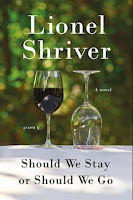Safeguards: Shielding Our Homes and Equipping Our Kids, Julie Lowe (New Growth Press, 2022)
I continue to be impressed by the resources that Julie Lowe provides parents. As a biblical counsellor, mother of six, and author of Child Proof and Building Bridges, she has much wisdom and experience. Her new offering, Safeguards, encourages parents to “establish a home and a worldview that protects your children.” Her overarching principles are that:
- We live in a broken, fallen world.
- We teach children to navigate the world by helping them learn to discern good from evil and right from wrong. Safety skills are a fruit of this.
- Yet, we trust that our safety ultimately rests in the hands of our God.
She opens with wisdom as the foundation for equipping children with safety skills. This recognises the dangers in our modern world that is technology rich, peer influenced, and self-oriented. Yet, as in every age, our hearts are sinful and our motivations are never pure, and we are called to be salt and light. Neither worry nor denial are safety skills, and we don’t want to raise fearful kids, but equipped kids. A parent’s role is to know their children, where they are vulnerable, and to equip them discerningly for the realities of life and things they may experience.
The middle section covers numerous areas in which to equip children with safety skills. This covers a wide range of topics and scenarios:
- sexual abuse
- teaching kids to evaluate behaviour
- using role play to practice managing situations
- key topics to discuss: abuse, sex, respect & privacy, when it’s OK and not OK to be uncomfortable, and being able to say no
- technology and how to use it
- bullying, if kids get lost, sleepovers, babysitters, & safety plans.
Each has wise advice and suggestions, acknowledging that each family will make their own decisions.
The final section considers safety with teenagers and young adults. The chapter headings give a fair idea of what is covered:
- Teenagers needs genuine relationships with God and their parents
- Comparison, peer pressure and treating others with respect
- Sex and dating
- Social media and technology safety
- Pornography and sexting
- Alcohol abuse, drugs and smoking/ vaping
- Navigating mental health struggles (of kids and their friends)
- Safety skills for growing independence - when in public, driving, etc.
- Online dating, consent, and campus life
Lowe finishes with the comfort and encouragement that God is our refuge and strength and very present help in trouble. Whatever situations we and our children will face, we can still turn to the Lord for help.
Some parents may read this and feel overwhelmed. But much of it is proactive, wise, common sense applied to the challenges of parenting. Only some will be applicable for the stage you are at, so you can read what is relevant and come back to the rest later. The advantage of this information in one book means that it may operate as an alert to remind you of things you have put off addressing with your kids, or may raise issues you have not yet thought about. A helpful resource for parents.
I received an ecopy of this book in exchange for an honest review.























